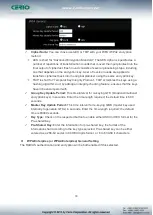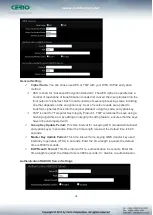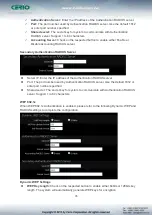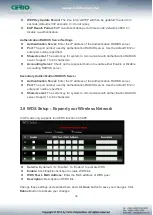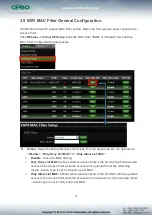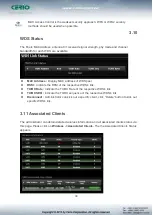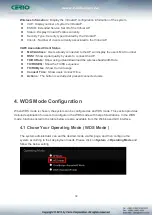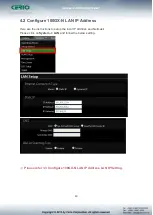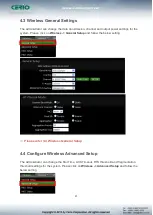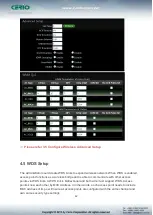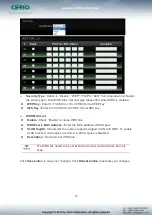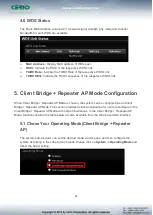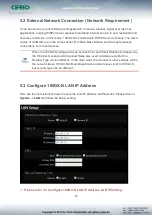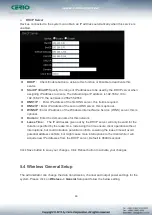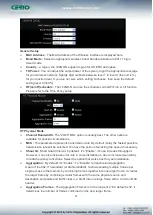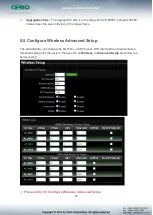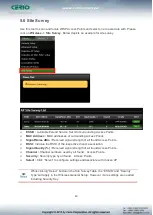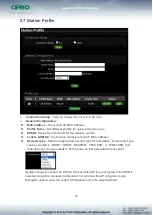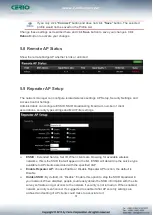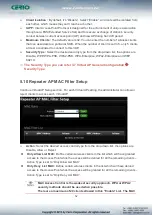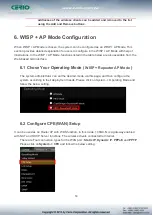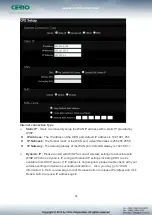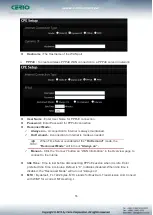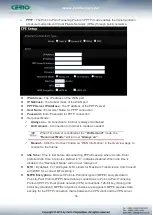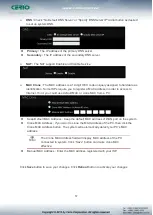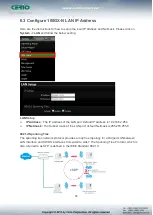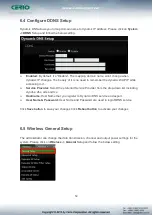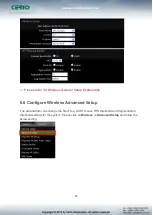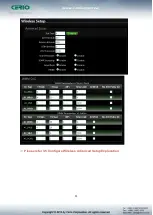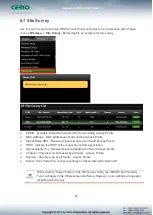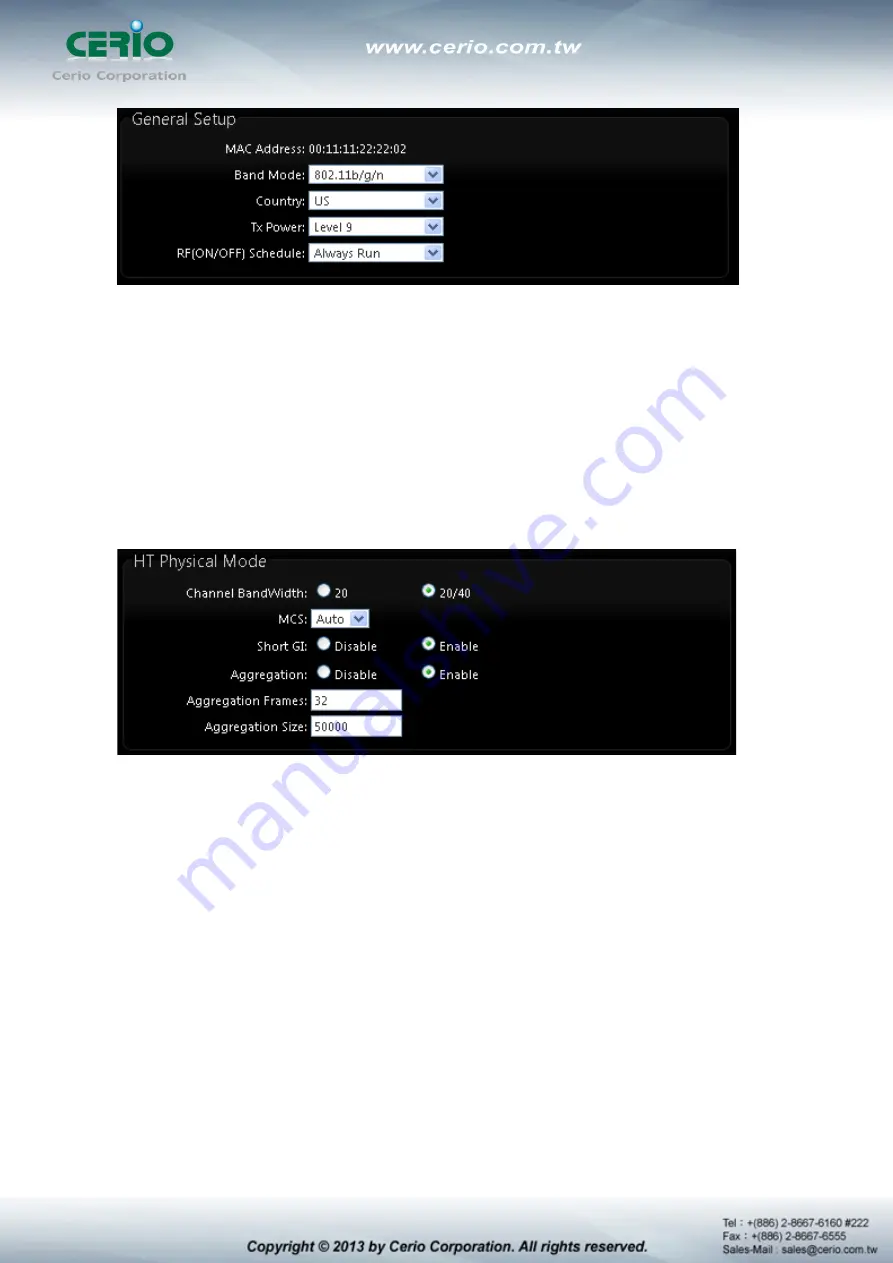
47
General Setup
MAC Address :
The MAC address of the Wireless interface is displayed here.
Band Mode :
Select an appropriate wireless band; bands available are 801.11 b/g/n
mixed mode
Country :
a region, the 100GX-N support region for US,ETSI and Japan
TX Power :
You can adjust the output power of the system to get the appropriate coverage
for your wireless network. Specify digit numbers between level 1 to level 9 (the unit is %)
for your environment. If you are not sure which setting to choose, then keep the default
setting level 9 (100%)
RF(on/off) schedule :
The 100GX-N can use the schedule control WiFi on or off function.
Please refer to the Time Policy setup.
HT Physical Mode
Channel Bandwidth :
The "20/40” MHz option is usually best. The other option is
available for special circumstances.
MCS :
This parameter represents transmission rate. By default (Auto) the fastest possible
transmission rate will be selected. You have the option of selecting the speed if necessary.
Shout GI :
Short Guard Interval, by default, it's “Enable”. it's can increase throughput.
However, it can also increase error rate in some installations, due to increased sensitivity
to radio-frequency reflections. Select the option that works best for your installation.
Aggregation :
By default, it's “Enable”. To “Disable” to deactivated Aggregation.
A part of the 802.11n standard (or draft-standard). It allows sending multiple frames per
single access to the medium by combining frames together into one larger frame. It creates
the larger frame by combining smaller frames with the same physical source and
destination end points and traffic class (i.e. QoS) into one large frame with a common MAC
header.
Aggregation Frames :
The Aggregation Frames is in the range of 2~64, default is 32. It
determines the number of frames combined on the new larger frame.

